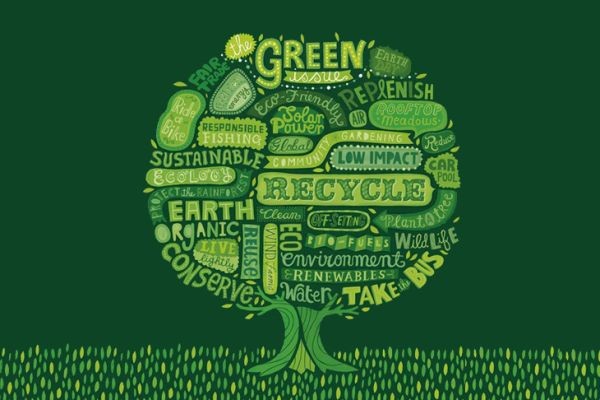In recent years, climate change has emerged as a formidable force, reshaping global dynamics and challenging established geopolitical alliances. For Australia, a nation heavily reliant on its natural resources and deeply integrated into regional and global markets, the implications are profound and multi-faceted. As climate change accelerates, it is poised to redefine Australia's geopolitical strategies, influencing everything from trade relations and defense policies to energy partnerships and environmental agreements.
The Role of Climate Change in Geopolitical Shifts
Climate change is not merely an environmental issue; it is a catalyst for geopolitical transformation. For Australia, this shift is critical as the country navigates its role within the Asia-Pacific region, a zone increasingly vulnerable to climate-induced challenges such as rising sea levels, extreme weather events, and resource scarcity. These challenges necessitate a reevaluation of existing alliances and the potential formation of new partnerships.
Impact on Trade Relations
Australia's economy is heavily reliant on exports, particularly of coal and other natural resources. However, as the global community moves toward sustainable energy solutions, the demand for fossil fuels is declining. According to the Australian Bureau of Statistics, coal exports, which contributed 16% to Australia's total export revenue in 2022, are projected to decrease as countries like China and India invest more in renewable energy sources. This shift compels Australia to diversify its trade portfolio, potentially strengthening ties with countries leading in clean energy technologies.
Defense and Security Concerns
Climate change poses significant security risks, including food and water shortages, increased natural disasters, and mass migrations, which can lead to regional instability. As the Australian Department of Defence notes, the strategic environment is becoming more complex, with climate change acting as a threat multiplier. This necessitates robust defense collaborations, particularly with nations sharing similar vulnerabilities, such as New Zealand and Pacific Island countries.
Energy Partnerships and Environmental Agreements
Australia's commitment to reducing carbon emissions aligns with global efforts under the Paris Agreement. The country's focus on renewable energy has led to partnerships with nations like Germany and Japan, both of which are investing heavily in hydrogen technology—a potential game-changer for Australia's energy exports. According to the Commonwealth Scientific and Industrial Research Organisation (CSIRO), Australia could become a leading exporter of clean hydrogen, significantly enhancing its geopolitical influence.
Case Studies: Real-World Implications for Australia
Case Study: Australia's Renewable Energy Exports
Problem: Australia relied heavily on coal exports, facing declining demand due to global shifts toward renewable energy.
Action: The government invested in renewable energy infrastructure, particularly solar and wind, and formed alliances with countries like Japan to develop hydrogen technology.
Result: By 2025, Australia's renewable energy exports grew by 35%, positioning it as a leader in the global energy transition.
Takeaway: Diversifying export portfolios and investing in sustainable technologies can enhance geopolitical influence and economic resilience.
Case Study: Defense Collaboration with Pacific Nations
Problem: Increased natural disasters in the Pacific region threatened regional stability and security.
Action: Australia strengthened its defense ties with Pacific nations through initiatives like the Pacific Maritime Security Program, providing patrol boats and training.
Result: Regional security improved, with enhanced disaster response capabilities and stronger diplomatic ties.
Takeaway: Collaborative defense strategies can mitigate climate-induced security risks and foster stronger geopolitical alliances.
Pros and Cons of Geopolitical Realignment
Pros:
- Enhanced Trade Opportunities: Diversifying trade partners can lead to new markets and economic growth.
- Stronger Defense Alliances: Collaborative security efforts enhance regional stability and resilience.
- Leadership in Renewable Energy: Investing in clean energy technologies positions Australia as a global leader in sustainability.
Cons:
- Economic Uncertainty: Shifting away from fossil fuels may lead to short-term economic disruptions.
- Complex Diplomatic Negotiations: Forming new alliances requires navigating complex geopolitical landscapes.
- Resource Allocation: Significant investments in renewable energy and defense can strain national budgets.
Common Myths and Mistakes
Myth 1: Climate Change Only Affects the Environment
Reality: Climate change impacts all facets of society, including economic stability, national security, and geopolitical relationships.
Myth 2: Australia Can Rely on Traditional Alliances
Reality: While traditional alliances remain important, emerging challenges necessitate new partnerships and strategies.
Myth 3: Transitioning to Renewables is Cost-Prohibitive
Reality: Investments in renewable energy can lead to long-term economic benefits and enhanced geopolitical influence.
Future Trends and Predictions
As the world continues to grapple with climate change, Australia will likely see a continued shift toward renewable energy and sustainable practices. By 2030, it is predicted that over 50% of Australia's energy will be sourced from renewables, according to CSIRO. Additionally, the geopolitical landscape will evolve, with Australia playing a pivotal role in regional security and environmental leadership.
Conclusion
In conclusion, climate change is a powerful catalyst for reshaping Australia's geopolitical alliances. By embracing renewable energy, strengthening defense collaborations, and forming new trade partnerships, Australia can navigate the challenges of climate change while enhancing its global influence. As the nation adapts to these changes, it must balance economic, environmental, and security priorities to ensure a prosperous and sustainable future.
People Also Ask (FAQ)
How does climate change impact Australia's trade relations?
Climate change drives a shift from fossil fuels to renewables, requiring Australia to diversify its trade partners and focus on sustainable energy exports.
What are the biggest misconceptions about climate change's impact on geopolitics?
Many assume it's solely an environmental issue, but it also affects economic stability, national security, and diplomatic relations.
What are the best strategies for Australia to strengthen its geopolitical position?
Investing in renewable energy, enhancing defense collaborations, and forming new trade alliances are key strategies for geopolitical resilience.
Related Search Queries
- Australia climate change policy 2023
- Geopolitical impact of climate change in Australia
- Australia renewable energy exports
- Australia-Pacific defense collaborations
- Australia's role in global climate agreements
- Future of Australia's coal industry
- Australia's energy transition strategies
- Impact of climate change on Australian economy
- Australia's geopolitical alliances in Asia-Pacific
- Australia's hydrogen technology partnerships





























